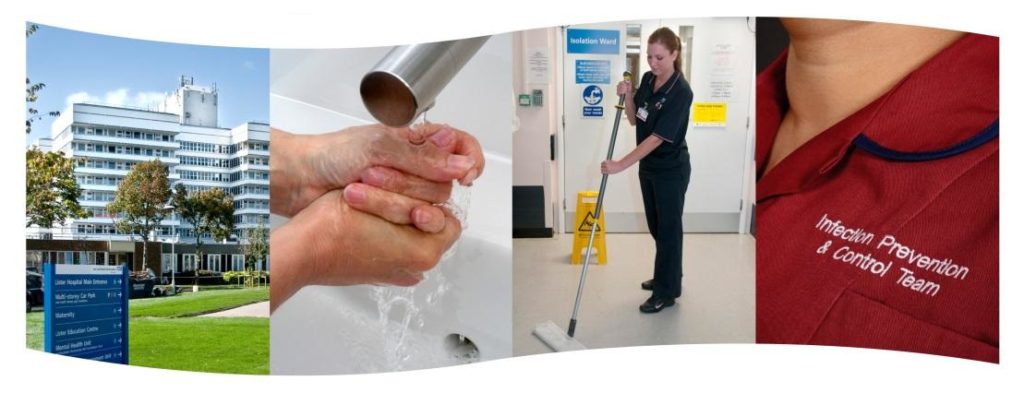We have made infection prevention one of our top clinical priorities.
Our infection prevention and control advice is available 24 hours a day to support our staff and answer any questions they have.

Below are example of some of the ways we are actively fighting infections in our hospitals
Hand Hygiene
To protect you from infections, our staff will clean their hands using a hand rub or soap and water every time they attend to you. If a member of staff appears not to have cleaned their hands, please feel free to remind them to do so – or speak to the nurse in charge if you prefer. We monitor regularly how well our staff, caring for patients, clean their hands, providing feedback to them when it’s necessary. You can also help reduce the risk of infections by cleaning your hands too whilst in our care, especially after you use the toilet and always before eating and drinking. If you could ask your visitors to clean their hands too, then that would be a great help.
Staff Training
All of our staff undertake infection prevention and control training, with regular updates.
MRSA screening of patients for both planned and emergency admission to hospital
We screen patients who are coming in to have a planned operation, especially those who have higher risk factors. This involves taking a swab to test for MRSA being present on your skin or nose. Find out more in our MRSA policy.
Our infection prevention and control strategy
The aim of our infection prevention and control strategy is to have no avoidable healthcare acquired infections and to become one of the top ten performing NHS Trusts in the country. To see the Trust’s latest infection prevention and control annual report, go to the Our Publications page where several formal Trust documents and reports can be found.
Infection Control Performance
| MRSA bacteraemia | Clostridioides difficile (C.diff) | |
| 2017/18 | 1 | 28 |
| 2018/19 | 2 | 27 |
Figures for monthly performance in the current year can be found in the Trust’s Board papers.
Read more about how to help prevent the spread of infection using our patient information leaflets